[Tamba City] Experience the culture of sake and fermentation at Tanba's famous brewery "Nishiyama Sake Brewery" where you can encounter works of art
![[Tamba City] Experience the culture of sake and fermentation at Tanba's famous brewery "Nishiyama Sake Brewery" where you can encounter works of art](https://resources.matcha-jp.com/resize/720x2000/2023/12/20-158280.webp)
Kozumi is a mild-tasting alcoholic beverage made from underground water from the Takeda River that flows through the mountains. This sake brewery has been a gathering place for literary figures for 174 years since its establishment in 1849 (Kaei 2), and their works are still displayed throughout the store. ``Nishiyama Sake Brewery'', where you can not only enjoy delicious sake but also see wonderful art up close, is a place to keep an eye on as a new facility is about to open.
-
Table of Contents
- A historic sake brewery with three nationally registered tangible cultural properties
- You can see calligraphy, paintings, and other amazing works of art up close.
- Sake named by Kyoshi Takahama ``Kotsuzumi''
- Kozumi design by artist Kosuke Watanuki
- A shop where you can buy a variety of Kotsuzumi brand flavors
- ``Kuden'' is a new shop that spreads the culture of fermentation.
- basic information
A historic sake brewery with three nationally registered tangible cultural properties
![[Tamba City] Experience the culture of sake and fermentation at Tanba's famous brewery "Nishiyama Sake Brewery" where you can encounter works of art](https://resources.matcha-jp.com/resize/720x2000/2023/12/20-158282.webp)
The main building, which stands along the road leading to Fukuchiyama, was built around 1891 (Meiji 24) and is a two-story wooden structure with a tiled roof. It retains the housing style of this area from the mid-Edo period, and is registered as a nationally registered tangible cultural property.
![[Tamba City] Experience the culture of sake and fermentation at Tanba's famous brewery "Nishiyama Sake Brewery" where you can encounter works of art](https://resources.matcha-jp.com/resize/720x2000/2023/12/20-158284.webp)
The interior of the store was renovated in July 2021, and the wood for the counter is reused from the wooden ``vessels'' and sake barrels that were once used to squeeze sake. Ink letters that would have been written by the brewers of the time can be seen here and there, and even after many years have passed, you can still feel the spirit of the brewers of the time. It is also charming that there is a spout left for dispensing the finished sake.
You can see calligraphy, paintings, and other amazing works of art up close.
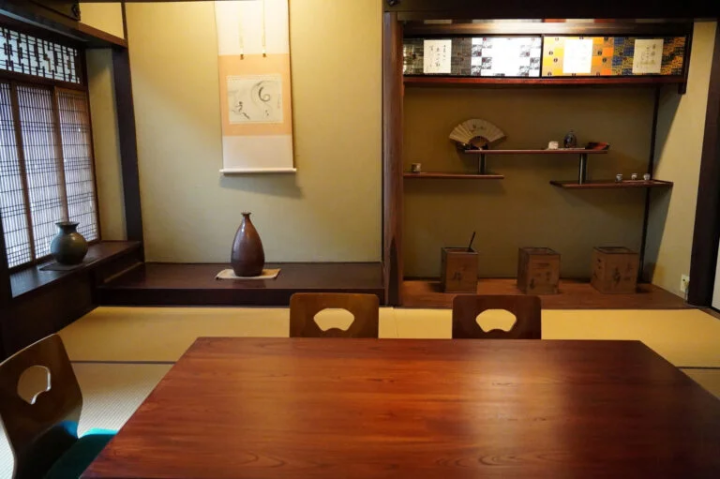
When talking about the history of Nishiyama Sake Brewery, it is impossible to avoid Kyoshi Takahama, a haiku poet who was active from the Meiji period to the Showa period. Ryozo Nishiyama, the third-generation owner of the brewery, was moved by the poems of Shiki Masaoka, an up-and-coming haiku poet who died young in 1902, and met Kyoshi Takahama, Shiki's younger brother. He became Kyoshi's number one disciple, and would compose haiku under the haiku name ``Harigumo'' and send them to Kyoshi for guidance.
It seems that the two had a relationship of mutual trust and respect that went beyond that of teacher and student. Tomakumo's younger brother also became Kyoshi's second disciple, and under the haiku name ``Tomatsuki,'' he became devoted to haiku. For this reason, Nishiyama Sake Brewery at the time seems to have played the role of a salon where many writers and artists gathered.
As a result, most of the calligraphy and paintings displayed throughout the store are actual works that were created here.
![[Tamba City] Experience the culture of sake and fermentation at Tanba's famous brewery "Nishiyama Sake Brewery" where you can encounter works of art](https://resources.matcha-jp.com/resize/720x2000/2023/12/20-158286.webp)
Pasted on the sliding door of the tatami room, which was once the Nishiyama family's guest room, are strips of paper written by famous literary figures.
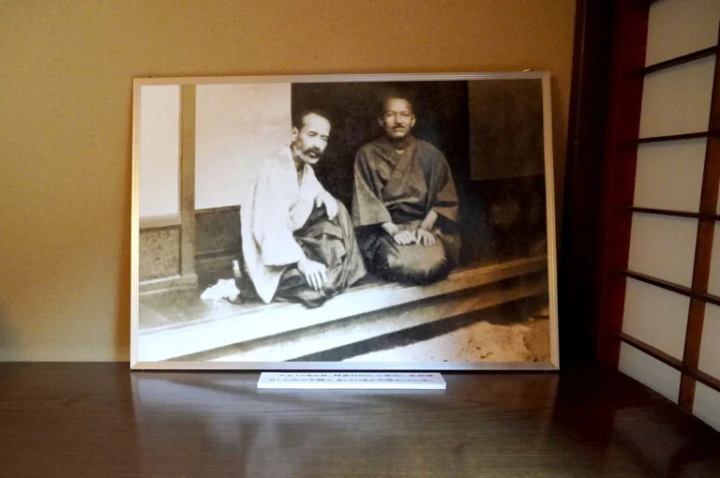
When I look at the photo of Japanese painters Ogawa Imozen and Tomakumo sitting on the verandah relaxing, I can imagine the brewer and literary figures sitting in this room drinking sake and talking about art.
Sake named by Kyoshi Takahama ``Kotsuzumi''
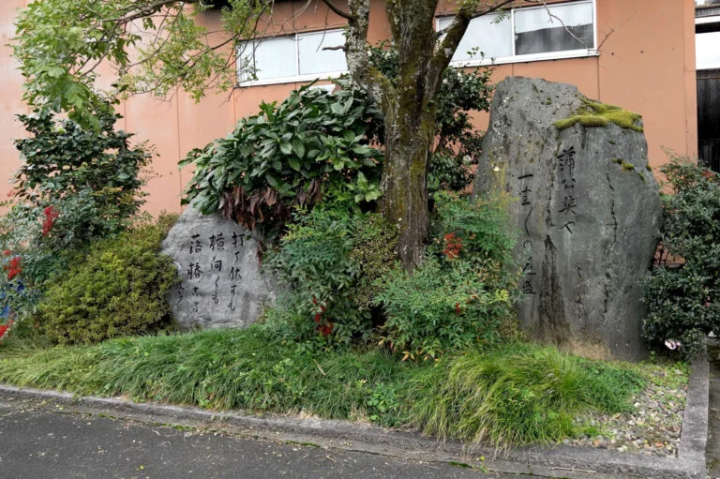
Tomakumo and Tomatsuki were known as the ``Two Nights of Tamba'', and they read many poems, with Tomakumo appearing on the front page of the haiku magazine ``Hototogisu'' 28 times, the most ever. However, the brewery was forced into a predicament when the youngest brother incurred losses in the market.
![[Tamba City] Experience the culture of sake and fermentation at Tanba's famous brewery "Nishiyama Sake Brewery" where you can encounter works of art](https://resources.matcha-jp.com/resize/720x2000/2023/12/20-158290.webp)
At that time, Kyoshi named the brand of sake ``Kotsuzumi'' and composed the haiku, ``There is delicious sake here, and I named it Kotsuzumi.'' It is said that thanks to Kyoshi's publication of Kotsuzumi in Hototogisu, which was extensively advertised and even sold, the sake sold, and even more writers and artists visited the Nishiyama Sake Brewery.
![[Tamba City] Experience the culture of sake and fermentation at Tanba's famous brewery "Nishiyama Sake Brewery" where you can encounter works of art](https://resources.matcha-jp.com/resize/720x2000/2023/12/20-158291.webp)
One of the painters Tomakumo met through ``Hototogisu'' was Usen Ogawa. He often visited Tanba from Ibaraki Prefecture, where he lived, and stayed for a long time at Sekizo-ji Temple, near Nishiyama Sake Brewery, where he interacted with the people of Tanba. Furthermore, Tomakumo's eldest son and Imozen's second daughter got married. Tomakumo's eldest daughter and Imosen's third son get married. The two families became relatives and further deepened their relationship. It is said that many letters exchanged between Tomakumo and Imosen remain.
Kozumi design by artist Kosuke Watanuki
![[Tamba City] Experience the culture of sake and fermentation at Tanba's famous brewery "Nishiyama Sake Brewery" where you can encounter works of art](https://resources.matcha-jp.com/resize/720x2000/2023/12/20-158293.webp)
The fifth generation, Yuzo Nishiyama, was responsible for updating the Kotsuzumi logo and package design.
I fell in love with the worldview of artist Hirosuke Watanuki, and by convincing him, who was not involved in commercial design at the time, Kotsuzumi was reborn with an image completely different from previous sake designs.
![[Tamba City] Experience the culture of sake and fermentation at Tanba's famous brewery "Nishiyama Sake Brewery" where you can encounter works of art](https://resources.matcha-jp.com/resize/720x2000/2023/12/20-158294.webp)
The room with a hearth attached to the shop has frames and cushions designed with the design of a ``kotsuzumi'', representing Kosuke Watanuki's worldview.
A shop where you can buy a variety of Kotsuzumi brand flavors
![[Tamba City] Experience the culture of sake and fermentation at Tanba's famous brewery "Nishiyama Sake Brewery" where you can encounter works of art](https://resources.matcha-jp.com/resize/720x2000/2023/12/20-158295.webp)
The shop carries a wide variety of Kozumi brand alcoholic beverages and non-alcoholic products. Local shipping is also available, making it a convenient gift.
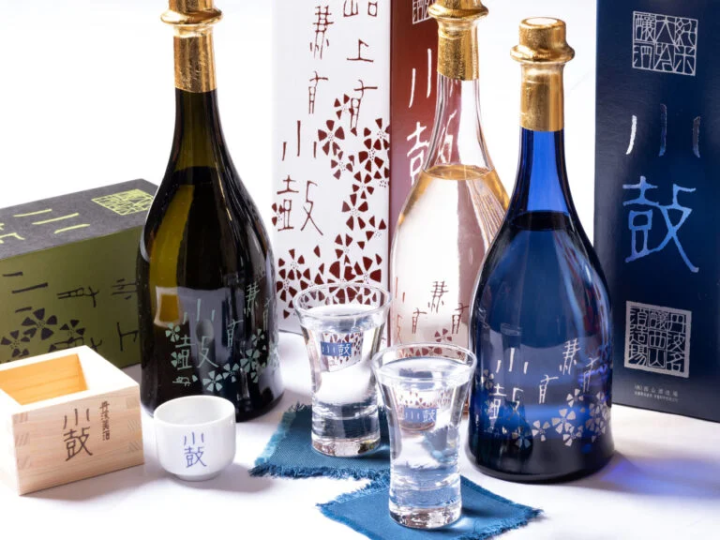
There are three types of Junmai Daiginjo, each made from different raw rice: ``Rojo Hanaari Aoi,'' ``Rojo Hanaari Black Peony,'' and ``Rojo Hanaari Peach Blossom.'' The rice we use is ``Yamada Nishiki'', the king of sake rice, for Aoi, ``Tajima Powerhouse'', which was locally revived for Kuro Botan, and ``Hyogo Kita Nishiki'', which is rare for Peach Flower.
Each flavor is different, but since the water used to prepare them is super soft, the overall impression is soft.
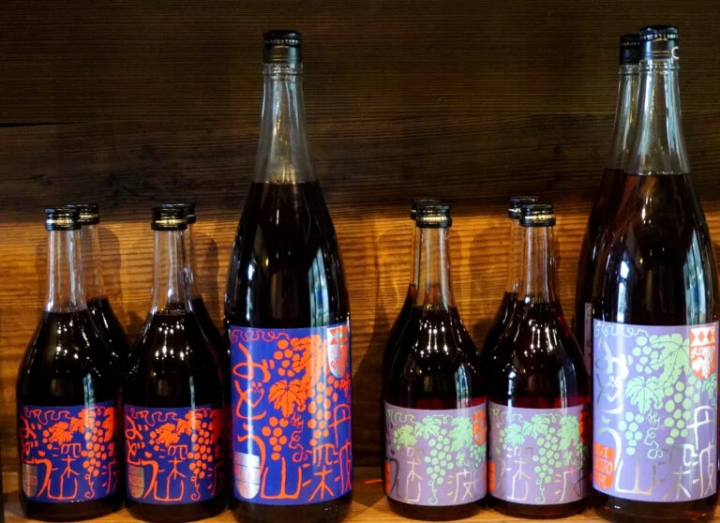
Grape liqueurs ``Miyama Budo'' and ``Miyama Shirobudo'' are refreshing and refreshing liqueurs that use domestic brandy as the base alcohol and do not use sugar. Other liqueurs include plum and chocolate, which are especially popular among women.
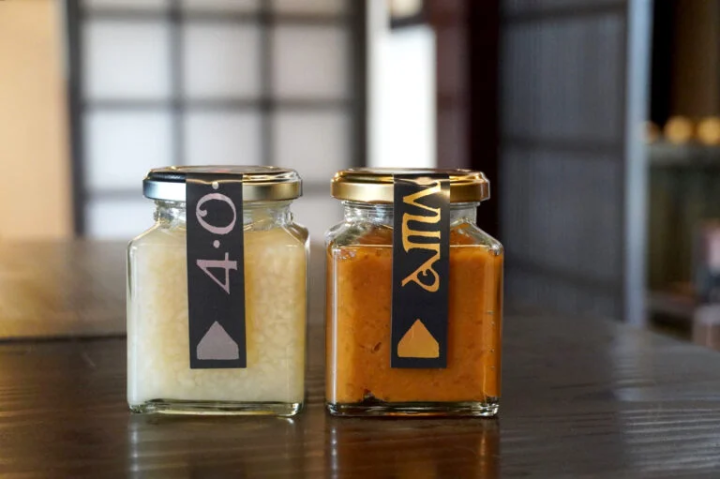
``Ama-koji'' is a sweet seasoning made from rice and rice koji, and ``Shiokoji'' is an additive-free seasoning made from amazake and domestic salt. It is a convenient seasoning that not only is made from natural ingredients and is safe, but also adds depth to the flavor of your dishes.
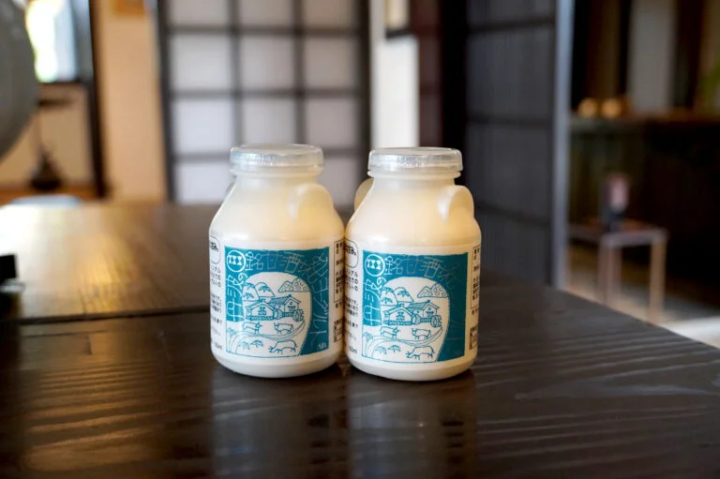
It is characterized by the natural sweetness of homemade amazake and local yogurt from Tanba Dairy. A refreshing non-alcoholic product that does not contain sugar.
![[Tamba City] Experience the culture of sake and fermentation at Tanba's famous brewery "Nishiyama Sake Brewery" where you can encounter works of art](https://resources.matcha-jp.com/resize/720x2000/2023/12/20-158300.webp)
You can also purchase works by Masafumi Onishi (Tanbungama), an up-and-coming Tamba ware potter, here. He is an artist who has many fans for his earthy warmth and high artistry.
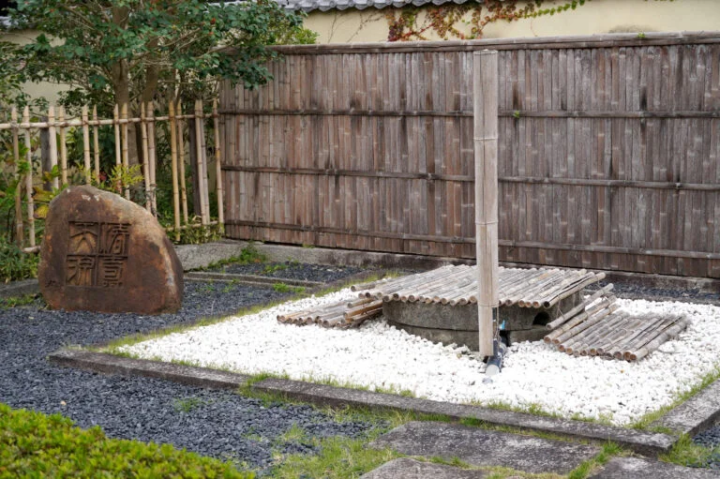
Chinju Tensen, underground water from the Takeda River that gushes out from a well on the premises, is used for brewing.
![[Tamba City] Experience the culture of sake and fermentation at Tanba's famous brewery "Nishiyama Sake Brewery" where you can encounter works of art](https://resources.matcha-jp.com/resize/720x2000/2023/12/20-158302.webp)
Delicious sake is produced throughout the year through a fresh rotation with strict temperature control, and in recent years has been exported to other countries.
``Kuden'' is a new shop that spreads the culture of fermentation.
![[Tamba City] Experience the culture of sake and fermentation at Tanba's famous brewery "Nishiyama Sake Brewery" where you can encounter works of art](https://resources.matcha-jp.com/resize/720x2000/2023/12/20-158303.webp)
We were given an early look at the complex facility "Koden" which is scheduled to open soon. It is a place where the inherited sake brewing environment and fermentation techniques are presented in a new form that suits modern lifestyles. It will be a place where people can gather, with a liquor and sweets shop, a cafe, and lodging facilities.
![[Tamba City] Experience the culture of sake and fermentation at Tanba's famous brewery "Nishiyama Sake Brewery" where you can encounter works of art](https://resources.matcha-jp.com/resize/720x2000/2023/12/20-158304.webp)
The art collection ``Sasajo,'' which Imosen sent to the store owner, depicts auspicious things, and the pictures are displayed on the wall at the front of the shop. ``Sansan'' is an auspicious number that, when multiplied, becomes the maximum number in the ones place, and ``sasa'' used to mean ``sake.''
In addition, the name of the brewer of Nishiyama Sake Brewery has had the character ``san'' in it for generations, so it is a character that has a connection to Nishiyama Sake Brewery.
![[Tamba City] Experience the culture of sake and fermentation at Tanba's famous brewery "Nishiyama Sake Brewery" where you can encounter works of art](https://resources.matcha-jp.com/resize/720x2000/2023/12/20-158305.webp)
The chairs at Kotsuzumi Onri, a fermentation cafe that retains the atmosphere of when it was used as a sake brewery, are made from wooden vats that were once used for sake brewing. Fermented dishes have long been used in company cafeteria dishes, so many people are familiar with fermented dishes. In addition to the menu, which was created by the nutritionist in charge of cooking, such as steamed rice and pizza, there will also be a sake brewery special afternoon tea.
![[Tamba City] Experience the culture of sake and fermentation at Tanba's famous brewery "Nishiyama Sake Brewery" where you can encounter works of art](https://resources.matcha-jp.com/resize/720x2000/2023/12/20-158306.webp)
In the gallery on the second floor, works by writers and artists with ties to Nishiyama Sake Brewery are on display. The frame in the center is a calligraphy by Yokoyama Taikan. You can also enjoy seeing precious art up close.
![[Tamba City] Experience the culture of sake and fermentation at Tanba's famous brewery "Nishiyama Sake Brewery" where you can encounter works of art](https://resources.matcha-jp.com/resize/720x2000/2023/12/20-158307.webp)
Kyoshi's calligraphy is casually placed at the entrance of the inn, where one group (up to 6 people) can stay per day by reservation only. Works by literary figures are also displayed in the interior, which is modeled after the ``kaishoba'' where the brewers slept. At Koden, we also plan to hold hands-on seminars related to alcohol and fermentation. Please check the official website for opening information.
basic information
Sake brewery tour (walk around the grounds/exterior only) Capacity: 1 to 40 people. Please contact us
Application: Reservation required at least 3 business days in advance by phone or inquiry form
Participation fee: 4,950 yen/time (same amount for up to 10 people)
When I visited this place in search of alcohol, I saw the calligraphy and paintings casually displayed and realized once again that it was such an attractive place that literary figures came from far and wide to visit, and that the sake was delicious. Sake and calligraphy are both cultures that Japan is proud of around the world. I can't wait for the opening of Koden, which will serve as a facility to disseminate information on fermentation and sake. The official website is available in English, Spanish, and Chinese.
(Writer Matsuda/West Plan)
*This article is information as of November 2023. Prices include tax. Product contents and prices may change.
basic information
Nishiyama Sake Brewery
Address: 1171 Nakatakeda, Ichijima-cho, Tanba City, Hyogo Prefecture
Phone number: 0795-86-0331 (main)
Business hours: 9:00-17:30
Regular holiday: New Year's holiday
Access: 10 minutes walk from JR Fukuchiyama Line “Tamba Takeda”
Parking: Available (50 spaces)
What are good things and good experiences? There are many characteristics such as having a story to tell, overflowing with the thoughts of the creator, having a history, and being loved by the locals. Have you ever come across a special thing or experience that made you want to tell someone about it? And as a result of telling, someone new leads to something. We think that's what "good" is all about. In order to deliver such encounters to our customers, we discover Hyogo's good things based on the concept of "talk, communicate, and connect", and provide information that will shorten the emotional distance between customers and the region of Hyogo Prefecture.
The contents on this page may partially contain automatic translation.





















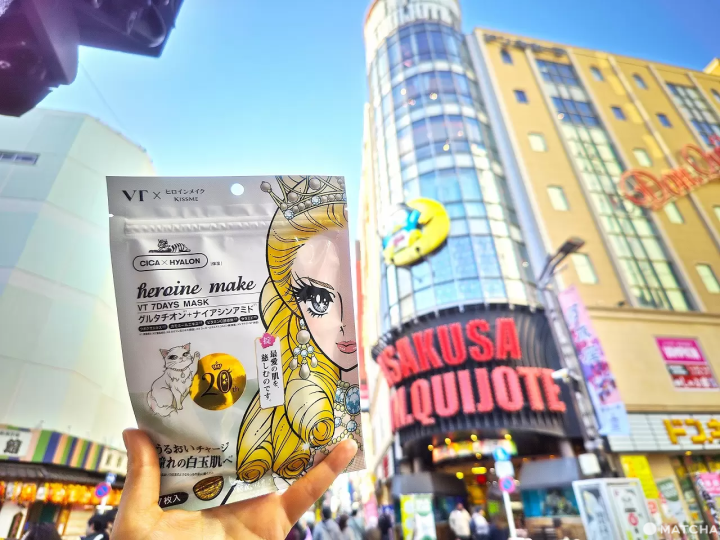
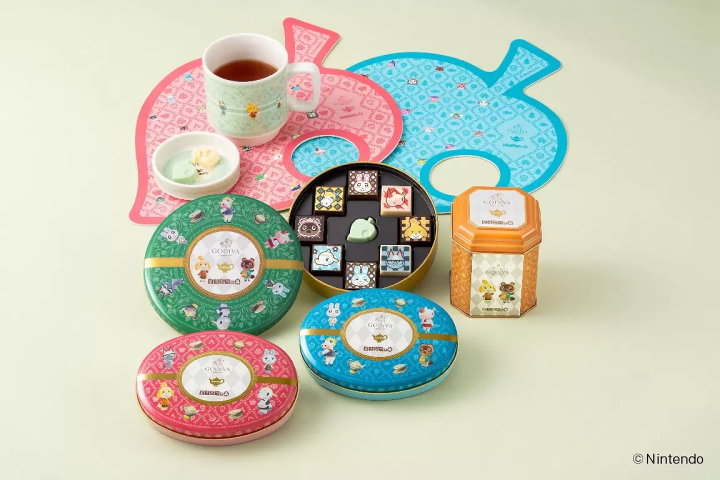
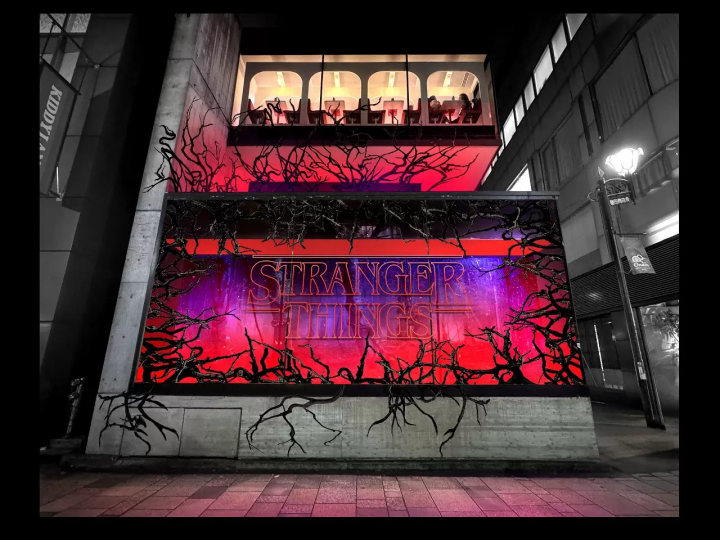
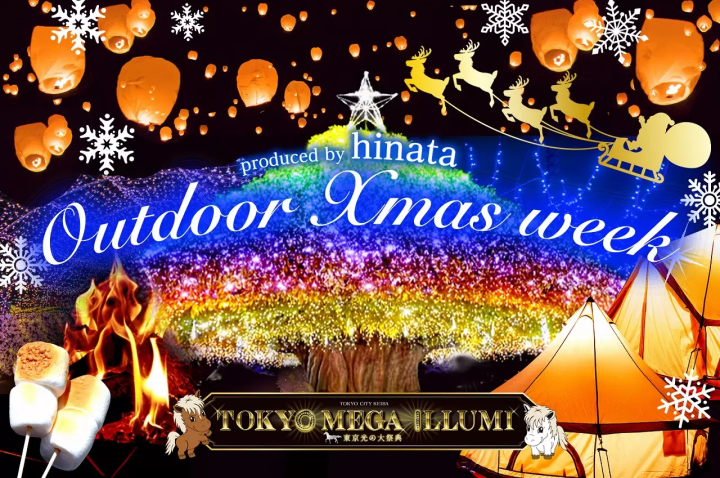
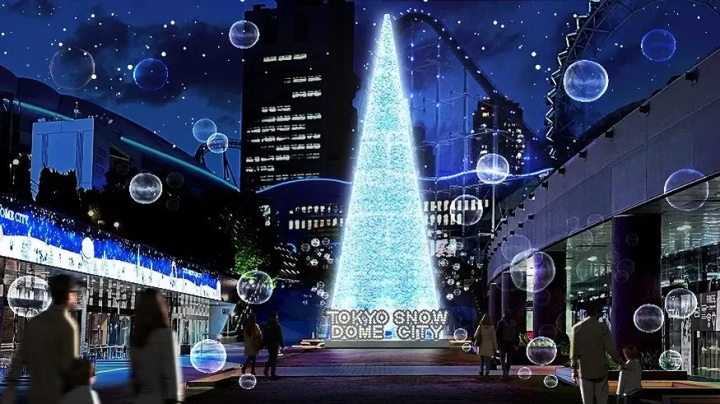
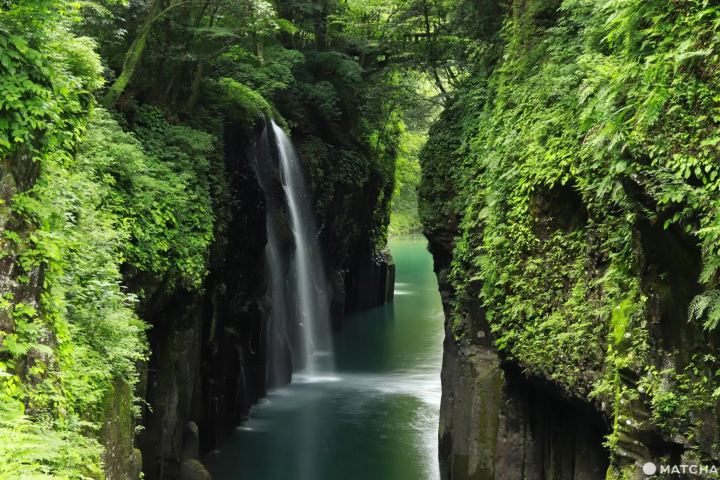




![[Traveling with a baby in Japan] Directly connected to the station! Rent a stroller at JR EAST TRAVEL SERVICE CENTER](https://resources.matcha-jp.com/resize/720x2000/2024/12/03-213323.webp)
![[2025] 4 Recommended Spots for Viewing Autumn Leaves in Tokushima, Naruto| Best Time to See, Highlights, and Access](https://resources.matcha-jp.com/resize/720x2000/2025/11/28-251301.webp)
![[During Your Kumano Trip] Cape Shionomisaki Tourist Tower](https://resources.matcha-jp.com/resize/720x2000/2025/11/05-249097.webp)
![[TICKET INTRODUCTION] Small Worlds Miniature Museum](https://resources.matcha-jp.com/resize/720x2000/2025/11/28-251446.webp)
![[Yamanashi, Yatsugatake] A specialty of the Kiyosato Plateau! Seisenryo soft serve ice cream🍦](https://resources.matcha-jp.com/resize/720x2000/2024/03/19-173634.webp)